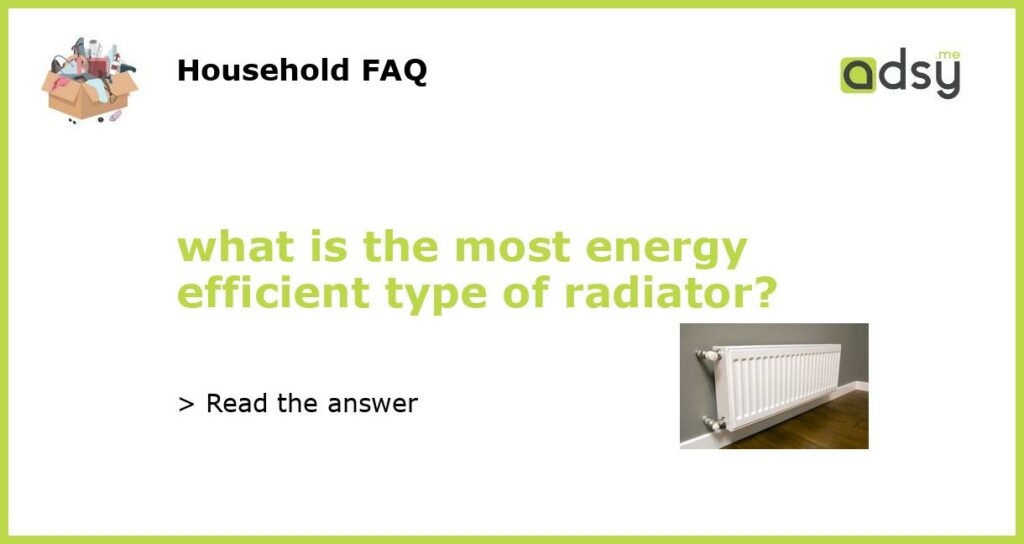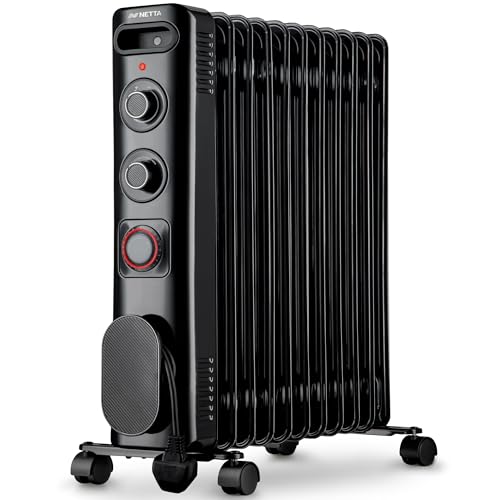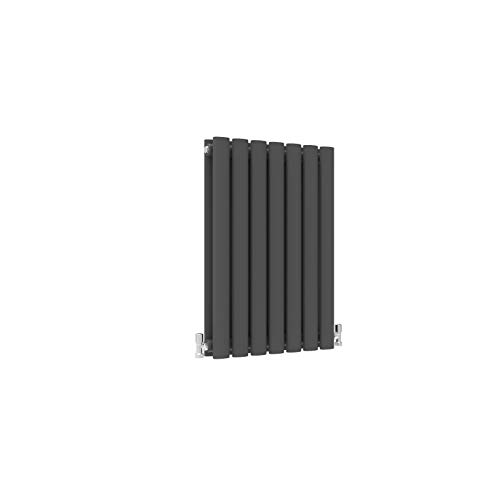Introduction
When it comes to heating our homes, energy efficiency is becoming an increasingly important factor to consider. Not only does it help reduce our carbon footprint and lower our energy bills, but it also contributes to creating a more sustainable environment for future generations. One crucial element of home heating is radiators. Therefore, we need to ask ourselves: what is the most energy-efficient type of radiator?
Understanding Energy Efficiency in Radiators
To determine the most energy-efficient type of radiator, it is essential to understand the factors that influence their energy efficiency. The key considerations include:
- Heat Output: The amount of heat a radiator can produce.
- Surface Area: The larger the surface area, the more heat can be emitted.
- Material: Certain materials, such as aluminum and stainless steel, conduct and distribute heat more efficiently than others.
- Thermal Mass: How quickly a radiator heats up and cools down.
- Thermostatic Controls: The ability to control temperature, reducing energy wastage.
Comparing Different Types of Radiators
Now that we understand the factors affecting energy efficiency in radiators, let’s compare some of the most common types:
3.1 Electric Radiators
Electric radiators are standalone units that operate independently of a central heating system. They are highly energy-efficient as they can be controlled individually, allowing precise temperature regulation room by room. Additionally, they eliminate heat loss through pipelines as in traditional systems.
Key Advantages:
- Individual control leading to reduced energy consumption.
- No heat loss through transmission pipes.
- Quick heat-up time and highly responsive.
Key Disadvantages:
- Higher running costs compared to a central heating system.
- Heating limited to the areas covered by the radiators.
3.2 Gas Radiators
Gas radiators are connected to a central heating system powered by gas. They are a popular choice due to their cost-effectiveness and wide availability. However, they are not as energy efficient as some alternative options.
Key Advantages:
- Lower running costs compared to electric radiators.
- Wide availability and compatibility with existing central heating systems.
- Ability to heat the entire house.
Key Disadvantages:
- Heat loss through transmission pipes.
- Not as energy efficient as some alternatives.
- Less control over individual room temperature.
3.3 Aluminium Radiators
Aluminium radiators have gained popularity due to their excellent heat conductivity, lightweight construction, and quick heat-up time. These properties make them highly energy efficient, as they can rapidly distribute warmth throughout a room.
Key Advantages:
- Superior heat conductivity resulting in efficient heat distribution.
- Lightweight construction allowing for quick heat-up time.
- Ability to cool down quickly, reducing energy wastage.
Key Disadvantages:
- More expensive than other radiator materials.
- Potential vulnerability to corrosion in hard water areas.
3.4 Underfloor Heating
Underfloor heating systems operate by emitting heat from beneath the floor surface, making it an efficient and space-saving option. These systems can utilize either electricity or hot water, with the latter being more popular due to improved energy efficiency.
Key Advantages:
- Even heat distribution throughout the room.
- Saves space by eliminating the need for radiators on walls.
- Works well with different types of floor coverings.
Key Disadvantages:
- Significant installation costs.
- Slow heat-up time due to heating a larger surface area.
- Difficult to retrofit into existing homes.
Conclusion
When considering the most energy-efficient type of radiator, it is essential to assess various factors such as heat output, surface area, material, thermal mass, and thermostatic controls. Based on these considerations, electric radiators emerge as a top choice due to their ability to control temperature and eliminate heat loss through pipelines. Aluminium radiators also offer energy efficiency advantages with their excellent heat conductivity and quick heat-up time. However, it is essential to carefully evaluate the specific needs and constraints of your home before making a decision. Ultimately, choosing an energy-efficient radiator will contribute to a sustainable and cost-effective heating solution for your home.






